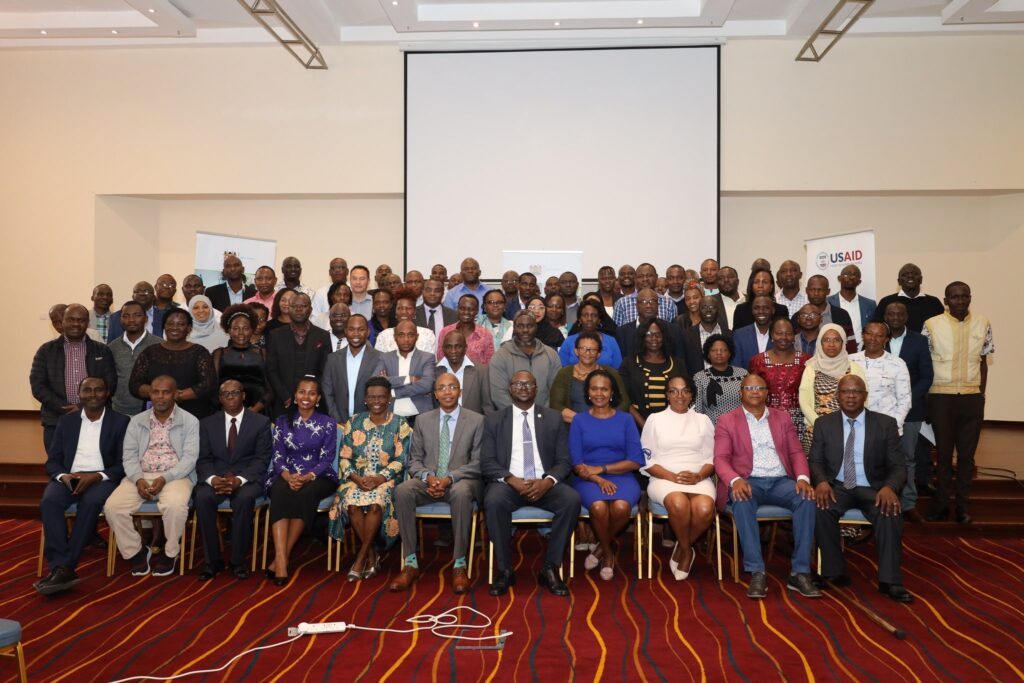Kenya Launches TB Diagnostic Network Assessment – Improving Access to Quality Diagnosis and Treatment

The National Tuberculosis (TB) Program has launched the TB Diagnosis Network Assessment (TB DNA), an important initiative in the fight against TB in the country. The launch was held on the 5th of May 2023 at the Movenpick Hotel in Nairobi. The event was graced by various stakeholders in the health sector, including representatives from both national and county governments, healthcare providers and community organizations.
In her speech which was read by Dr. Joseph Lenai, Head, Directorate of Preventive and Promotive Health, Dr. Josephine Mburu, Principal Secretary, Ministry of Health – State Department for Public Health and Professional Standards, highlighted the importance of the TB DNA in Kenya’s fight against TB. She noted that TB remains a leading cause of mortality globally, with approximately 10.6 million people in 2022, of which 1.2 million (11%) were children. She further echoed that Kenya had recorded 90,841 TB cases in 2022, but only 68% of the estimated 133,000 TB cases in the same year had been diagnosed and notified. It stimulated the need for innovative and effective strategies to diagnose TB.
Dr. Mburu asserted that the Ministry of Health remained committed to ending TB, as outlined in the National Strategic Plan, all while supporting the use of evidence-based and data-driven interventions to guide policy decisions and program implementation at the national and county levels. She also underlined the significance of the TB DNA in identifying the gaps in the TB diagnostic landscape, which hindered access to timely, quality-assured TB diagnosis for all patients engaged with the health system across all sectors.
The TB DNA launch was endorsed by various partners, including the United States Agency for International Development (USAID). This support would prove invaluable in addressing the gaps in the TB control agenda for Kenya. The assessment would give recommendations and improve access to WHO-recommended rapid tools for diagnosing TB. Consequently, the findings would further inform national policies, guide resource mobilization on top of improving universal access to and availability of quality diagnostic tools across the country.
Dr. Mburu appealed to all stakeholders to support this initiative and work together to end TB in Kenya. She reiterated that the success of the assessment hinged on the collective efforts of all stakeholders. The Ministry of Health, through the National TB Program pledged to supporting the adoption of the recommendations from the exercise in a bid to improve programming and achieving the overall goal of ending TB in the country. The two-week exercise which is being conducted by local and external experts and supported by USAID IDDS project targets 13 counties: Nairobi, Machakos, Kitui, Kilifi, Mombasa, Busia, Kisumu, Siaya, Transnzoia, Laikipia, Meru, Nyeri and Turkana counties.
The TB DNA launch is a monumental step towards improving TB diagnosis and treatment in Kenya. The initiative aims to identify gaps in the current system and develop evidence-based strategies for improvement. The launch underscores the need for innovative and effective strategies to diagnose TB, and the commitment of the government and its partners to ending TB in the country.














This has come timely. To improve the diagnostic services in Kenya
We need ownership inTB programs to reach more TB patient champion at community led drive support group at all levels 46 county at ward or door to door ca m